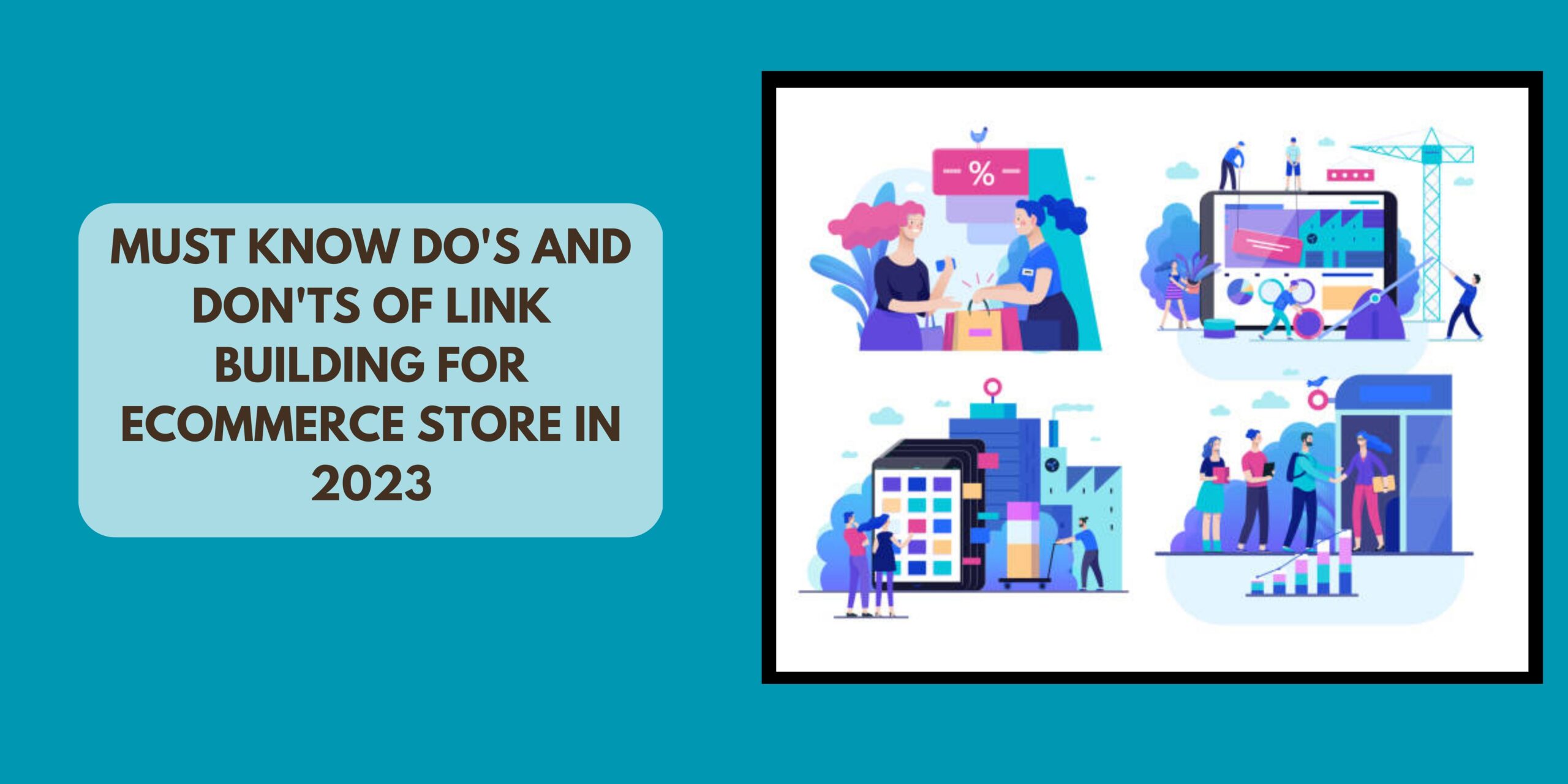
So, you have probably finished setting up your ecommerce store and invested heavily on SEO to rank on Google. While you’re at it, you might come across link building and start experimenting with it.
But you see no improvement in your Google ranking. RIGHT?
Why is it so? The primary reason is using the wrong link building strategies for your ecommerce website.
In the past, it was just about building links. The more links you build, the higher you rank on the search engine.
But with time, Google changed its algorithms, resulting in a quick shift in link building too.
Today, if you want to build links effectively, consider building quality links specific to your niche.
So, what does it mean to you?
If you are an ecommerce store owner and want to sell your products on a massive scale, touch base with potential customers online. To do so, you need to scale your content to rank higher on Google search.
One way to do this is to leverage the power of link building strategies specific to the ecommerce website. That said, there are numerous strategies to build links for your ecommerce store, but you need to determine which ones are best for your business.
Let us show you what link building is, why it’s essential, and what are the different strategies for effective e-commerce link building.
What is Link Building for E-Commerce Store?
When it comes to ranking higher on the search engine, link building plays an essential part. Without building good links, you can’t think of your website appearing in the search results on the first page.
So, what is link building?
It is the process of getting links from other websites to your site, utilizing niche-specific content with anchor text.
For example, you run an ecommerce store that sells indoor plants and wants to build links. In that case, you approach relevant websites to publish your article about the benefits/uses of indoor plants. Once the host agrees, they publish your content and provide a link to anchor text in your article that directs to your website.
This is just one example of how you can build links. There are numerous other ways to build links, some of which are mentioned below in this blog.
What is the difference between link building for ecommerce vs. non-e-commerce websites?
E-commerce stores focus on optimizing their website to improve visibility and drive more sales. In contrast, non-e-commerce websites aim to attract more visitors.
So, when you do link building for ecommerce, focus more on buying intent. And when doing it for other websites, keep your aim towards providing information.
Furthermore, you can do a few different things for link building for e-commerce websites.
For example,
- Acquiring links from the manufacturer’s website or through product reviews.
- Listing on the buy page.
- Building affiliate marketing programs.
Besides, there are numerous other strategies for ecommerce link building, which you can use per your needs. Let’s explore these strategies further in this blog.
10 Mind blowing Strategies for Effective E-Commerce Link Building
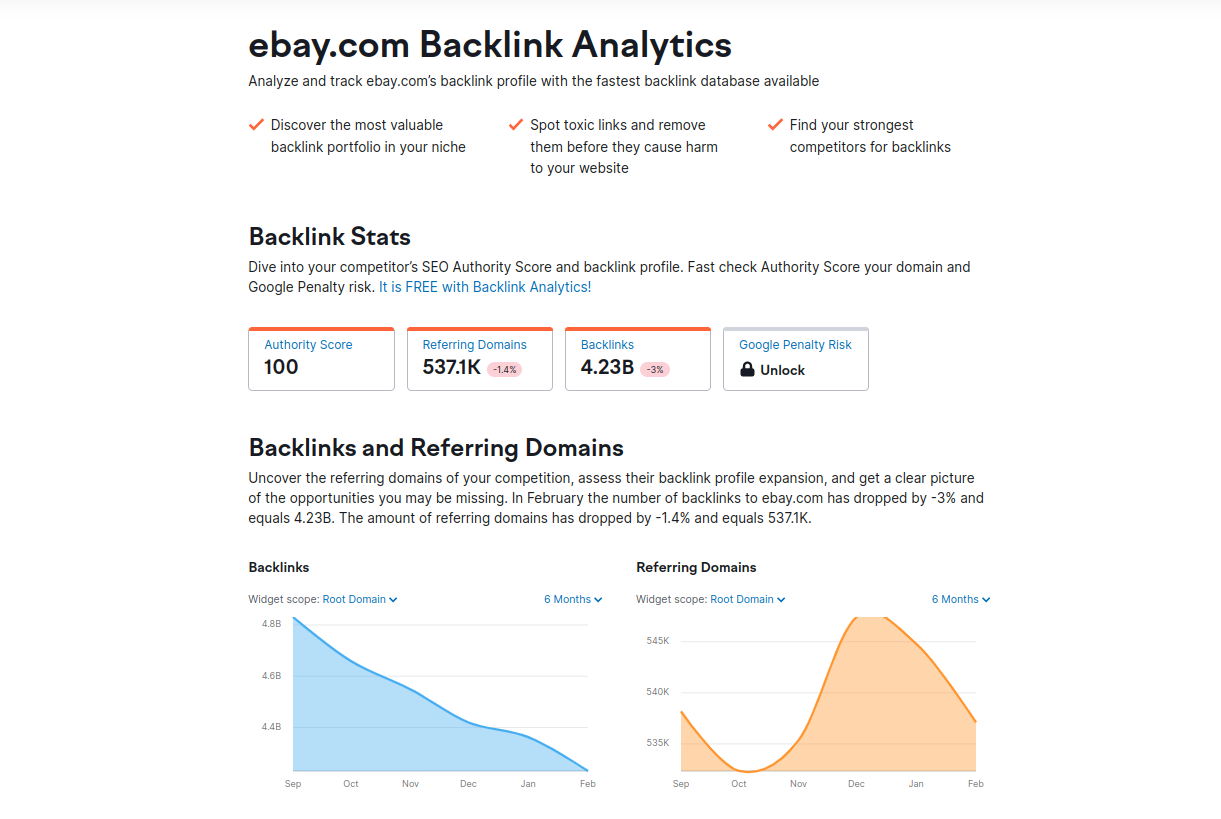
Detailed Overview Of Backlinks Acquired By eBay.com
After a thorough analysis of successful ecommerce stores like eBay, here are some of the best strategies for effective e-commerce link-building. Implementing these strategies can help your ecommerce store achieve higher search engine rank and drive more sales.
1. Maintain an Active Blog on Your Website
If you want to build links effectively, an active blog on your ecommerce website is a must. Blogs help you acquire links from highly authorized websites. Moreover, the blog content can also be used for interlinking with relevant products and category pages.
There are a few things you must consider when running a blog:
- Create engaging content that is relevant and factual.
- Blog must be part of your website domains, subdomain, or directories.
To understand this point better let’s see how Casper took the mattress industry by storm with their content strategy
To acquire customers and build trust, Casper, an ecommerce store dealing in mattresses, started “The Casper Blog.” They optimized their content marketing and built 31.7k backlinks to rank for 171K organic keywords.
Like Casper, you can create a blog for your store and implement a good content marketing strategy, including link building, to drive more sales.

Overview of Casper Website Traffic and Backlinks
2. Start Affiliate Marketing Program
Running an affiliate marketing program for your website can significantly boost the link building process. But before starting such a marketing program, you should know that all the affiliate links from a dedicated affiliate platform are no-follow links. In fact, an affiliate link doesn’t impact your page rank and gains you nothing in terms of link building.
So, now you must be thinking, “how to use affiliate marketing for link building?”
It is tricky, but following the structure discussed below can help build a robust link-building program.
First, create your affiliate system instead of using a dedicated affiliate platform. You can do so by using plugins like Affiliate WP. Getting links to your website through this program will be counted as do-follow.
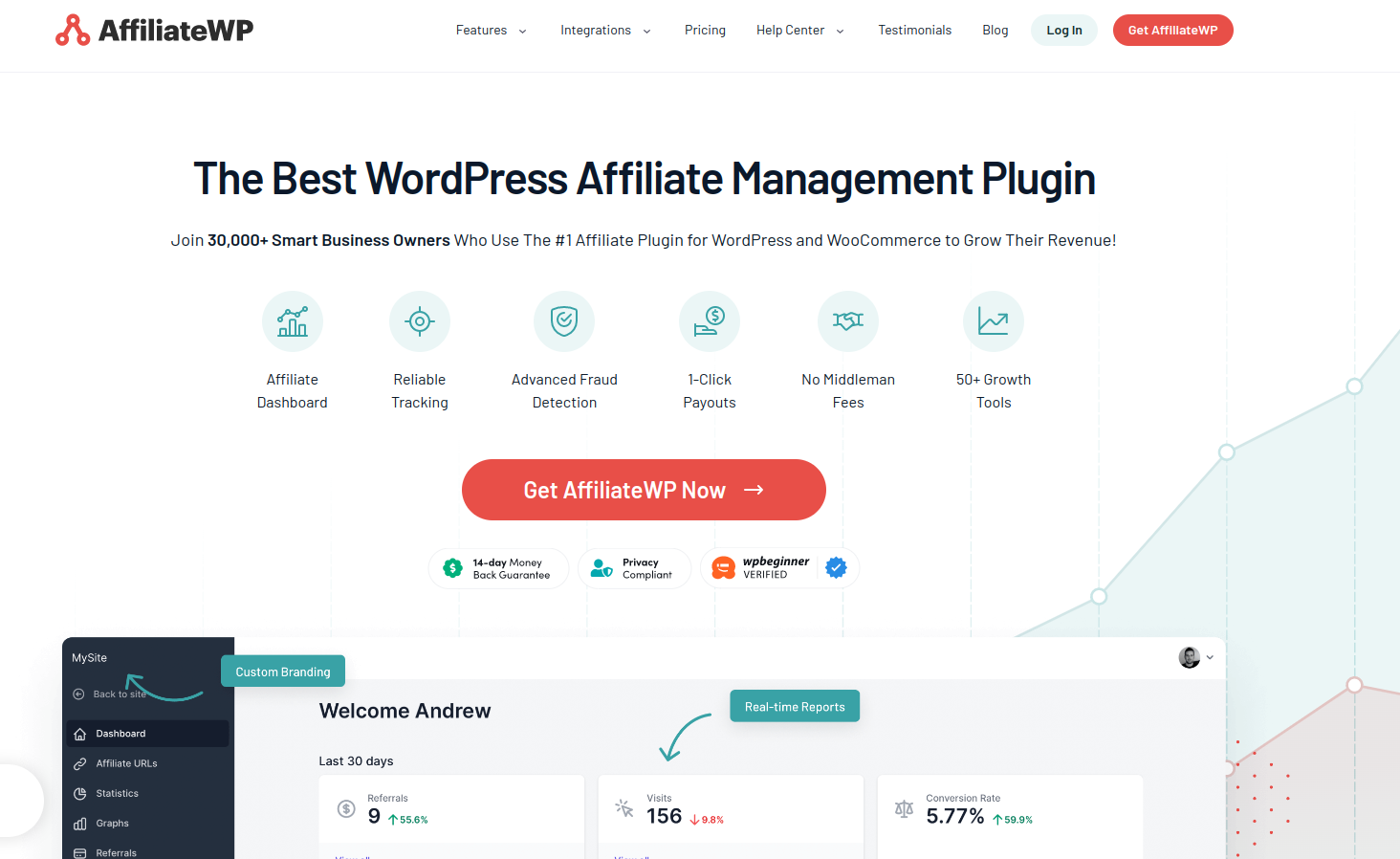
Affiliate Website Home Page
Second, make sure you add no-follow tag to the link of ads that you share with advertisers. It is vital as ads on your affiliate website are placed in the sidebar and site wide. Doing this ensures you don’t get hundreds of do-follow links from that website.
On the other hand, you do not have to add no follow tags while sharing a link for an affiliate blog.
3. Get Links from the Manufacturer’s Website
Having an ecommerce store has its advantages. One is you can use the manufacturer’s website for link building. There are multiple ways you can do this:
- Send mails to manufacturers asking how you can get a backlink from their websites.
- Approach manufacturers for guest blogging on their websites if they have a blogging section.
- Check on the manufacturer’s website whether they have any section for linking to the retailer’s website.
4. Partner with Influencers for Product Review
Partnering with social media influencers can be a potent way to build links for your ecommerce website.
According to a study conducted by Harris Poll, social media influencers significantly impact consumer shopping behavior. The data reveals that 75% of followers aged between 18-25 of a particular influencer report buying products based on his reviews.
Therefore, share your free sample with a social media influencer, and they will provide you with a backlink that has a high potential for sale. Influencers are always ready for such a product review as they are part of engaging content.
But remember, there are a few things you have to ensure while choosing an influencer:
- Choose an influencer with a relevant audience per your niche because an irrelevant audience won’t contribute to your sales. For example, if you sell shoes, and tie up with influencers who create content for home décor, their audience will be irrelevant to you.
- Don’t only look for big names; start with influencers with at least 10k followers.
In addition, as per Google terms, exchanging links for review can be considered paid endorsement; hence don’t do it on a large scale, as getting few links will not raise any red alert.
Let’s look at the case study Of Happy Box to clarify it more.
Happy Box Used Influencer Strategically to Power Their Sales while Building Links

An Influencer Promoting Happy Box
Happy Box, a gift-giving delivery service, increased its sales 10x by using influencers, who helped them build links to their website and trust among customers.
They send a Happy Box to an influencer at a strategic time of year, such as Valentine’s Day, for review. In return, the influencer links to their website, allowing the audience to get Happy Box products.
It is an innovative technique, which can be easily implemented to increase your sales and build links, all at the same time.
5. Get Listed on Where to Buy Pages
Where to buy pages, also known as Stockists, are pages of brand listing stores that stock and sell their company’s product. So, if you sell a third-party product, you must check whether those brands have where to buy pages. In case they do, pitch for a mention on their webpage. This will provide a backlink to your website.
How To Do It?
First, make a list of all the brands that you sell and then search on Google. For example, we use this format to search for Decathlon, a popular sports ecommerce store.

You must use this format for all the searches, just changing the brand name.
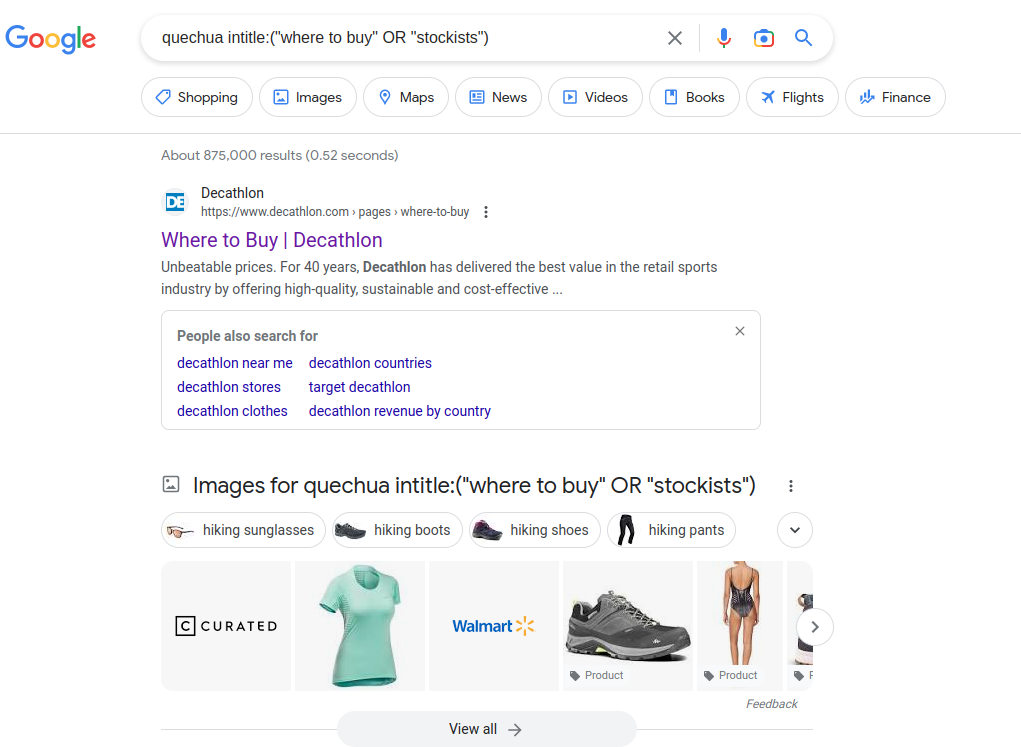
In the above screenshot, you can observe in the search results that Decathlon does have a where to buy page. Further visiting the website page, we can see various retailers mentioned with their links.
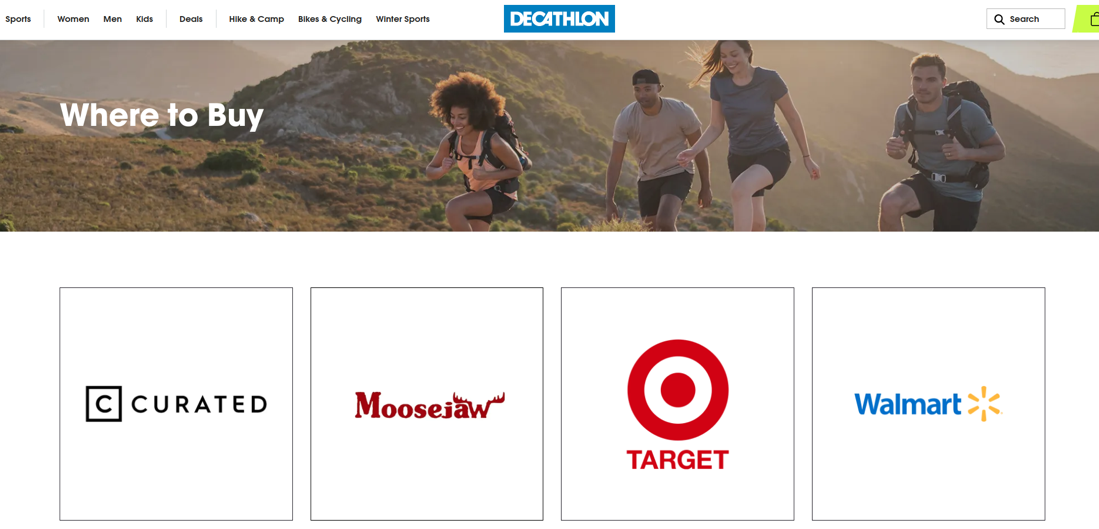
6. Publish Your Blog on Media Websites
Getting your blogs published on renowned media websites like Forbes not only helps you in link building but also in improving your website authority. In addition, it is a great way to promote your business online and help build trust among your customers.
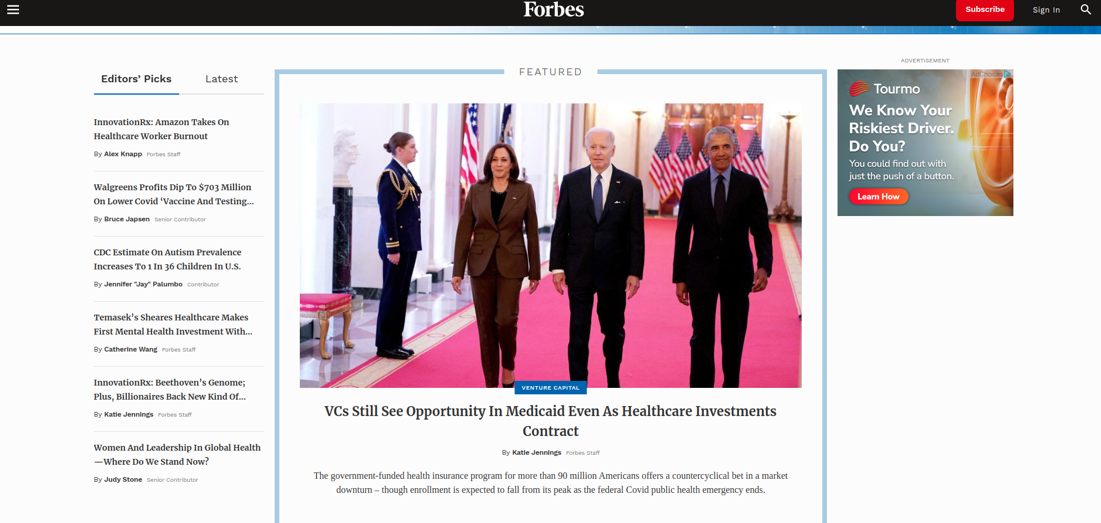
Forbes Website Home Page
Now you might be thinking about how to get published on a media website. And is that easy?
Although it might not be as straightforward as it may seem, doing the following things can boost your chances.
Approach a Journalist
Journalists can only publish your content on their website when they know you and your brand. So how do you do that?
You can connect to the journalist via email or social media websites like Instagram, Facebook, Twitter, etc. You can also run targeted fakebook campaigns.
Pitch the Editors
Another way to get your content published is to pitch it to the editors. This process differs from the first one as you pitch content ideas to the editor. To get connected to the editor, observe their content and website for some time. Once you analyze their website, mail your content ideas to the editor. But make sure you write a crisp mail that can attract editors’ attention without much effort.
This approach makes targeting your customers easier if you get published on a well-known website.
7. Pursue Unlinked Brand Mentions
Unlinked brand mentions are online mentions of your product or ecommerce brand on any webpage, social media page or video, etc., that don’t link to your website.
Finding these mentions and getting a backlink can add value to your overall link-building strategy.
How To Convert Unlinked Brand Mentions into Links?
Follow these steps to find the unliked brand mention and earn a backlink.
- Search all the unlinked brand mentions with positive and neutral opinions using tools like Content Explore.
- Do a complete analysis of the website in terms of domain authority, number of backlinks, traffic, etc., with any SEO tool.
- Look for the contact information and reach out to them, asking for a backlink to your website.

Forbes Website Analysis Data
8. Build Powerful Niche Edits
Niche edits can be your best-suited link-building strategy for an ecommerce store since it is one of the easiest ways to build links.
Unlike guest posting, where you create content for another website for a backlink in return, Niche edits are a bit different. You approach a website owner to provide a backlink to your ecommerce website without offering any content.
How To Get Niche Edit Links?
There are two ways:
- Approach a website with similar content to yours with a proposal. The other website will accept the offer only if your content or product page benefits its customers. For example, if you sell men’s clothes, find websites specific to men’s fashion and accessories.
- Another way is to hire an agency for link building. They will handle all the link-building processes and provide quality niche edit links for you. Such agencies comprise an expert team that conducts potent outreach methods with a customized approach, building quality links for you.
9. Use Haro to Get Quotes
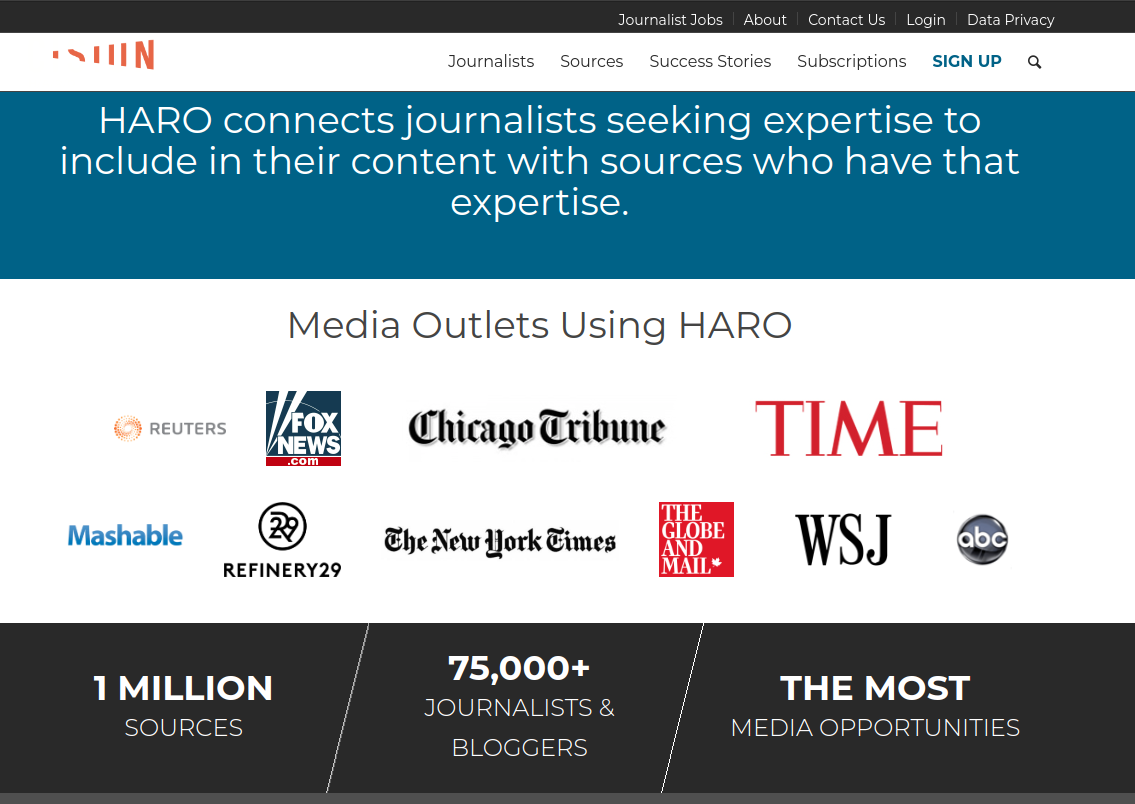
Haro is an excellent tool for effective link building of your e-commerce website as it brings journalists and other bloggers together. The tool works in the following way:
- Journalists post all the questions on particular topics to get answers from industry experts.
- You register for their service and subscribe to a category of your choice.
- You get questions posted by journalists on your email and can answer them using HARO.
- Once your answers are accepted, the journalist publishes the story referring to your name and website.
Overall, it is a very effective tool, but you have to be smart to increase the chances of getting your content accepted. Do that through the following things:
- Beat others by responding as fast as you can.
- Provide to-the-point answers in the format they want.
- Provide contact information for further communication.
10. Do Guest posting On Relevant Websites

Over the years, guest posting has become an effective way to get backlinks.
For guest posting, you publish an article on another website and, in return, get a link to your ecommerce site. This increases your brand awareness and website traffic and drives more sales.
How to Guest Post?
To publish your content on another website:
- Find websites that talk about the problems that your product solves and are looking for guest writers.
- Go through their publishing guidelines.
- Write an engaging content piece that includes a backlink to your website.
- Submit the content and get published on their website to get a link.
5 Common E-Commerce Link Building Mistakes to Avoid
While performing the technique mentioned above, you might unconsciously make mistakes that can hinder your overall search ranking and put your efforts in vain.
So, what do you do?
Nothing much! Just know these mistakes in advance and avoid them while you’re experimenting with link building.
1. Getting All Links to Your Money Pages (Product Pages)
The most common mistake people make while building links for ecommerce is getting all links to their product pages. Google counts this as spam, which negatively affects link-building strategies.
So, you must diversify the links in the following ways:
- Direct 40% links to your website product pages.
- Link the next 30% to the home page of your ecommerce website.
- Divert the remaining 30% to informational pages like blogs, articles, and case studies.
2. Creating Low-Quality Content
It is evident that poor content does more harm than good. Moreover, Google prefers websites that perform organic link-building.
Therefore, you must create high-quality content that naturally gets links from other websites.
If you create low-quality content, it usually gets low traffic on your website. And the low traffic decreases your chances of getting any backlinks to your website. Even the links you get will be from a low-authority website. In addition, it will also affect your search rankings, and you will miss a lot of referral traffic.
Besides, avoid building links on anchor text that links to a page with completely different information. Such content doesn’t create any value for the customer or reader.
3. Performing Ineffective Cold Outreach
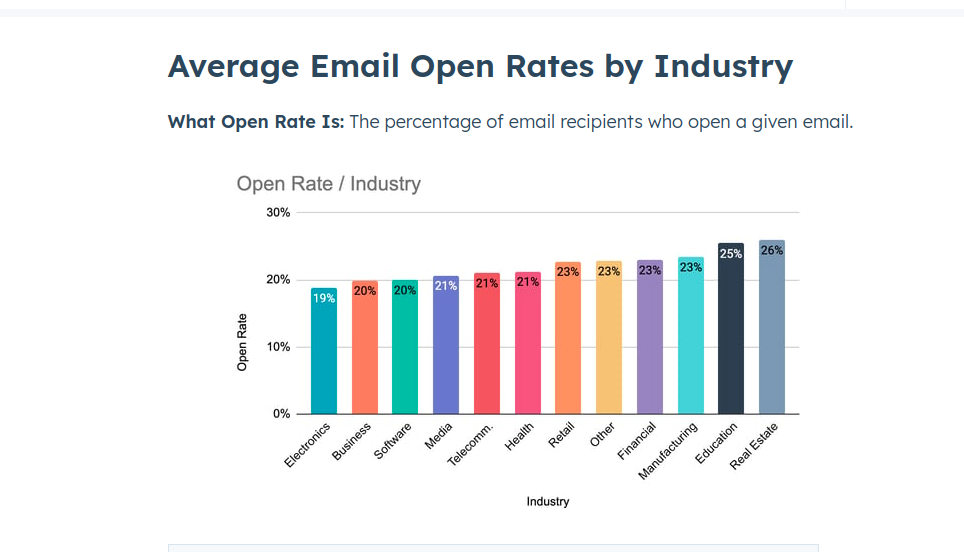
Research Data On Outreach Email
Do you know on an average only 20.94% of emails are opened? This means that most of your emails go to junk.
The primary reason for these statistics is the way you do cold outreach. Most people keep pushing mail without knowing that customers receive hundreds of mails daily. Getting through them is a challenging task.
You don’t need to change your strategy for better outreach. Instead, make a few changes while continuing with the classic way.
- Be Sincere in Your Approach: First, find how your products can help solve other website customer problems. Accordingly, keep everything to the point.
- Personalize Your Emails: Per the research, personalized emails can deliver 6X higher transaction rates. Hence, research other websites and their customers well and further create personalized emails.
- Be creative: Use infographics with catchy headlines in your cold emails.
4. Overusing the Same Anchor Text
You might use the exact anchor text multiple times in your content and link building approach to increase your ecommerce website search ranking. Although using the anchor text that matches the focus keywords is good, overusing it can backfire. And adding insult to injury – it is against Google’s terms.
Google views the overuse of anchor text as spammy, which results in lower search rankings. Furthermore, you miss other keywords that can bring you significant traffic.
That being the case, be creative and search for more related keywords that you can use effectively for link building.
5. Getting Links from Irrelevant Websites
What happens when you get a link from an irrelevant site?
It harms your website while downgrading the search engine ranking. Moreover, you get customers that are irrelevant to your products.
Google can easily detect low-quality or bad links. So, always ensure you search for relevant websites that relate to your niche. Speaking of, relevant sites are ideal platforms to get a valuable backlink.
Wrapping Up
Link building is an effective way to improve your ecommerce website SEO, boost search rankings, increase visibility, and drive more sales. However, you won’t see these changes overnight. It’s a slow process, and if performed right, you’re in for a treat.
You can start the link building course by implementing any of the above strategies that feel right for your ecommerce site. Ultimately, create engaging content on your website and look for only relevant links that match your products.
Reference:

About the author: Vibhav Gaur, Business Head
Vibhav Gaur leads strategic operations and business growth at the organization. With a strong background in digital transformation and customer-focused solutions, he has helped numerous clients streamline their web presence and scale efficiently. His leadership ensures seamless execution across teams, with a commitment to delivering results and fostering innovation in every project.
